
Sometimes, when I keep the TV on in the background, my eyes falls on the CW’s teen-oriented programming. The CW is characterized by its hot-color-looking, ultra-smooth moving series that try to look cinematic, very much like cheap soap operas. That says something already. Even though now it is trying to work out a more varied schedule to attractive people of varying ages, interests and backgrounds, for many years it was dominated by television series aimed at adolescents which suffer(ed) from varying degrees of quality. While there are storytelling issues also with some of the network’s recent series targeted at adults (I’m looking at you, Hart of Dixie, starring that girl formerly known as James! You get better each season, but you better drop the juvenile stuff! That ain’t pretty when you got a cast of characters made up of actual thirtysomethings!), the past and present teen-centric programming comes off as often sigh-inducing. Mostly because teenagers deserve entertainment that doesn’t treat them as brain-dead, but there’s a number of other reasons. Shall we?
- Casting
It is not uncommon in the film and television industry to hire mostly actors over 18 to portray adolescents. That is mostly because underage actors cannot work full hours without being legally emancipated. So, fair enough. However, the CW extends its employment of overaged actors as teens to a ridiculous extent as many of the network’s stars are visibly well into their mid-to-late 20s and even in their 30s.
Let’s get into it! Robbie Jones was 31 when he portrayed high school basketball star Quentin Fields on One Tree Hill‘s fifth season. Michael Steger and Trevor Donovan were both 30 when they started playing characters aged 16 and 17 respectively on 90210. Matt Lanter, bless his Star Wars-loving heart, seems unable of escaping high school: he started playing a character ten years his junior on 90210 in 2009, and continued his seemingly never-ending high school experience with Star-Crossed from 2013 to 2014 at age 30. I bet he and Billy Madison would be friends. Julie Gonzalo was six years her character’s senior when she joined the cast of Veronica Mars in its final season. Most of the actors who play the teens on The 100 are actually in their late 20s, and so was Nicole Fiscella from Gossip Girl. In 2011, The Secret Circle‘s Jessica Parker Kennedy was 27 when playing a character eleven years her junior.

Because they totally look like teenage kids
The characters’ ages compared to those of the actors who portray them become even more of an issue when you look at The Vampire Diaries, where the characters supposedly don’t age. Storywise, its first four seasons told a two-year-long story. By the fifth season, suspension of disbelief isn’t enough not to notice the actors’ actual ages: looking at Paul Wesley and Michael Trevino, you don’t buy them as kids in their late teens. Seriously, it doesn’t matter how many times you make them pronounce “like” in a sentence, they just don’t look right. But the weird casting decisions are not relegated to the kids: TV’s David Anders – who had the luck to start playing age-appropriate characters at the very beginning of his professional acting career – played the protagonist’s biological father, when he actually is only eight years actress Nina Dobrev’s senior. Saving the best for last, 46-year-old actress Alice Evans, who played the “Original Witch” Esther, is a mere six years older than actor Caspar Zafer, who played her son Finn.
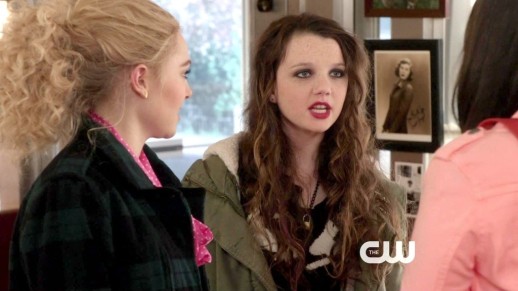
Spotted (on the right): Actual teenager (or more likely magical unicorn) playing a regular role on the CW
The CW’s obvious preference for wildly high age-inappropriate casting becomes annoying once you realize that it does actually hire teen actors from time to time for prominent roles. Shenae Grimes and Jessica Lowndes were 18 and 19 respectively when they started portraying sophomores on 90210; Taylor Momsen was really 14 at the beginning of Gossip Girl, while her co-star Connor Paolo was 17 playing 15; Stefania LaVie Owen was 15 when The Carrie Diaries began; Malese Jow and Ashley Rickards were 19 and 16 when they began their respective runs on The Vampire Diaries and One Tree Hill. Willa Holland also had a recurring role on Gossip Girl at 17. So you get to ask yourself why this network keeps bringing in actors too many years older than the characters they portray when it is perfectly able to find cast members of the right age, or at least near it.
Look, there’s no issue with a babyfaced actor in their very early 20s playing a teen, that’s what TV should be if there were no actual teen actors involved. However, if they don’t look the part – not even with the help of make-up and wardrobe – or are pushing thirty, just don’t hire them. When actors within the right age range are hired, the final result is more credible, such as in the case of Aimee Teegarden on NBC’s Friday Night Lights and even Mischa Barton on FOX‘s The OC. While E4’s Skins and Canadian teen drama Degrassi are not perfect, but they must be given credit for having a cast made up solely of actual teen actors (Degrassi also included Dobrev and Grimes).
- Wardrobe
This topic goes toe-to-toe fairly well with the previous one. The issue with the CW’s ridiculous use of overaged actors is that it doesn’t even try to make them look like they’re at least close to high school age. Look, I know many of these characters are rich, but that doesn’t mean anything. We’ve seen so many famous, rich kids (and kids trapped in adult bodies, it seems) going out dressed like they’re dirt poor (somehow it’s a weird trend among those people in Calabasas or something?). We’ve seen so many of them all dressed up real pretty in their day-to-day life, yet even in those occasions they stopped short of going full-on Naomi Campbell cosplay. Why can’t the wealthy youth of the CW do the same?
And yes, these are heightened reality fantasies. But even fantasies have rules to stick to and some elements that ground them to our world (i.e emotional honesty, not being a living catwalk) so they can work. Once you break the rules, you jump the shark. You don’t want that, do you?
The teen characters sport a rather mature and sophisticated style – all of them – that does not often help concealing the actors’ ages, and always fucking ages them (Gossip Girl here, your one and only source for learning how to age your cast through wardrobe! Seriously, Blake Lively was 20 in season one. Why did they make her look like a thirty year old?). It doesn’t help that in certain series such as 90210 and even Reign everyone seems to walk the very same symbiotic catwalk. At least Gossip Girl does indeed try to retain some specifically teen-oriented trends such as that inane obsession with headbands and does actually give its characters separate styles, sort of. Speaking of when season one of GG aired, I remembered reading a review for an episode of where the critic found it funny that that anytime Blair (Leighton Meester) is shown at home, her wardrobe is always overly elegant and elaborate, even her lingerie, stressing that not even someone with a trust fund equitable to Queen B’s wears that at home. On 90210, the young female characters’ expensive clothes are also quite inconsistent with their background: Silver (Jessica Stroup) is the daughter of an alcoholic who can barely provide for herself, let alone for a young daughter. She never even mentions to have some sort of job herself, but what kind of job can make a teen earn enough money to get a whole new fancy wardrobe? Similarly, Adrianna Tate-Duncan (Lowndes) once states she obsesses over winning professional acting roles so that she can pay the mortgage her mother can’t, making her the house’s main source of income. So you get to ask yourself how they bought their expensive dresses. But who knows, maybe their wealthy friend Naomi Clark (AnnaLynne McCord) opted to make them her fashion charity cases by letting them have her leftovers. Again, the required suspension of disbelief is too easily dissolved.
I can only think of Hidden Palms, The Carrie Diaries and The 100 as examples when I think of teens appropriately dressed for their age and situations on the CW. The characters on Hidden Palms are supposed to have good money and The Carrie Diaries is partly set in a fashion-industry-adjacent world, so if they can pull it off, why is everything else not pulling it off?
- Love is a (quite often melodramatic) force to be reckoned with, yet so easily forgotten
A majority of the important plots and subplots on the CW have much to do with the magic of endless love and how it is the one thing that manages to overcome and withstand any obstacle. Still, everyone falls out of love just as easily as they fall in love. It’s standard practice for the network to have a couple go up against insurmountable odds to be together, then have them break up a few episodes later. Then get back together. Then break up again. Then get back together. Then break up again. For good. To put it in simple words: everyone falls in love with everyone and completely forgets about their ex(es) by the season’s end. In every single series.
Sometimes you just don’t get how the characters become so enamored with one another so quickly. I mean, what’s the deal with having someone become so smitten with another through a single episode in spite of never having once expressed interest before? And how is it that everyone has at least six love interests per season? What’s their secret?
Sometimes the romances even get real patronising, like when Prince Francis (Toby Regbo) held Queen Mary (Adelaide Kane) locked up for a month on Reign. Mary Stuart’s fictional self deserves better treatment. Plus,
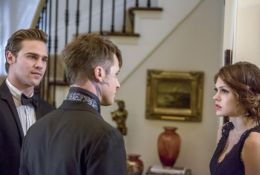
Tattooos = aliens. No rappers in sight here
what’s the deal with the “Terrible Love Triangle Disease” that’s plaguing so many CW products lately? I mean, dude! Why don’t they get that putting love triangles where they’re not necessary (Reign, of course) sucks the oxygen out of the story. You know, like the sci-fi romance Star-Crossed, which sacrificed making potentially interesting character development and social commentary in favour of falling back into the pointless love triangle hole!?!
By now it seems like it’s mandatory to insert love triangles into a series to make it get picked up by this network.
I want to point out that several series brazenly exploit the fantasy that “the love of a good girl can turn a bad boy good (and vice versa)”. I’m not saying love can’t affect people in a positive manner, it most certainly can. But love is not enough to sustain a relationship and it is not enough to make one person change. Both things require hard work and dedication, and making fiction that contains such a simplistic fetishization of love is not a good thing regardless of the network or the target audience. As Stephen King put it: it’s “tween porn”, and it’s not particularly good fiction.
- It’s asking us to root for the bully
Coming off endless love and starting to write about glorified bullying, we have to mention that giant elephant in the room: Gossip Girl‘s Blair and Chuck (Ed Westwick). They were endlessly popular with viewers and the writers always knew they were “endgame”. God knows why.  He publicly revealed details of her sex life to an online blogger, called her names, manipulated her, subdued her, attacked her self-esteem, slut-shamed her, treated her more like a property than a loved one, and pimped her out to his uncle Jack (Desmond Harrington) for a piece of real estate.
He publicly revealed details of her sex life to an online blogger, called her names, manipulated her, subdued her, attacked her self-esteem, slut-shamed her, treated her more like a property than a loved one, and pimped her out to his uncle Jack (Desmond Harrington) for a piece of real estate.
To clarify: Blair did not want to have sex with Jack, but met him anyways because he threatened not to return Chuck his hotel if she didn’t. Jack turned her down by saying: “I prefer my women willing”. If this quote doesn’t make it clear, 19-year-old Chuck set his first and one great love to be raped. Disgusting.
His behaviour towards others isn’t exactly respectful, either: he treats most women merely as sex objects or as means to an end and looks down upon people of lower social classes. Actually, I think his relationship with Blair was written into the plot in order to make the viewers forget about the pilot, i.e when he tries to force himself both on longtime friend Serena (Blake Lively) and freshman and future bully Jenny (Taylor Momsen), as if he had no clue that what he was doing was wrong. Even if he didn’t understand it, it’s made crystal clear others like Blair did and acted as if it were normal. She tells Jenny that Chuck isn’t gossiping about her because he doesn’t likes to brag about his victims, while at the same time hinting that being in constant danger of being assaulted is a price worth paying for gaining higher social status.
This also shows the problematic side of Blair’s character. Meester gave really good performances with what she had, but Blair is such a wasted character, it’s almost sad. She has positive qualities for sure, but she’s also the girl you hated in high school, that psychotic prom queen bitch, and an insufferable, spoiled brat. Her insecurities and bratty behaviour could’ve been a starting point for the character to become a more mature young woman who learns from her mistakes, while retaining her essential bitchiness. But I guess making her grow up wasn’t an option, After three seasons, Blair hasn’t had her internalised misogyny-shaped tumor removed.
In season two, Blair tries to ruin her mother’s fashion show to get back at Serena (Blake Lively). The thought that she’s messing with her mother’s career for bratty reasons doesn’t even cross her mind, nor does it inform her relationship with her mother in any way. Wasted character development potential. Still in season two, she is expelled from school and has her acceptance to Yale revoked after falsely claiming Dan had been sleeping with a female teacher. Prior to this, it’s doesn’t even implied that her actions could have had consequences far beyond the reach of a high school senior, nor that she’s acting like an idiot. Again, wasted narrative potential. Not to mention her banishing Jenny from the Upper East Side (oh, come on. That’s just stupid) or her aggressive slut shaming campaign against Serena early in season one.
Nobody is supposed to allow themselves to be noticed for their merits, the world must revolve around Blair and Blair only. She repeats the same mistakes season after season, and since she bases her own self-esteem on how others view her, she also accepts all sorts of shaming when directed at her. Her only redeeming qualities are her quotable bitchy remarks and wardrobe. However, in the end it can be said that the biggest bully of them all is the titular Gossip Girl, who took every chance to torment the life out of everyone.
90210 has its fair share of bullies, too. Annie (Grimes) is ostracised by her friends and brother after being falsely accused of sleeping with Liam (Lanter), who receives far more lenient treatment from his peers and girlfriend Naomi, who later sends a topless picture of Annie to the whole school. Note: Annie is a minor and her semi-nude photo getting passed around is a form of distribution of child pornography. In the real world, those involved in such a situation would have had to deal with very serious legal consequences. But of course 90210 doesn’t even mention that possibility. It’s an accurate portrayal of girls being blamed for others’ actions, but even Annie’s mother Debbie (Lori Loughlin) tells her daughter she should’ve paid more attention because the world isn’t fair to women. So, we’re told”don’t symphatise too much with the victim of revenge porn, the bullies had their reasons and accept the world’s injustices”. What the fuck?
Naomi apologizes to Annie in the end, but there’s not one single scene where anyone tells her how lucky she is Annie took her back given how much of a felon she had been.
Then comes Adrianna – who also sends a topless picture of Silver after discovering she’s the one her beloved boyfriend cheated on her with… Because sending topless pictures to get back at those who wronged you is so fetch… – who does by far the worst by substituting Silver’s meds for revenge. Her actions are typical soap opera villain fare and I wouldn’t have a problem with this storyline if they were actually portrayed as such. I mean, if you gonna go there with your villain of the week, then fucking go there. Don’t frame them as the actions of misguided lovelorn girl because you know you’re gonna give her a redemption arc later on. That’s just lazy writing, folks!
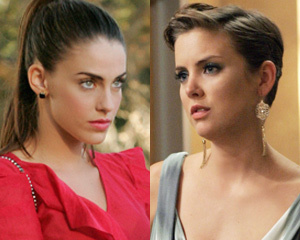
Sis, why?
These characters have the common sense of a four-year-old who can’t distinguish right from wrong. Well, writing that statement is actually an insult to four-year-olds.
- Where the hell are their parents?
A boy’s best friend is his mother. Well, not on the CW… But that’s mostly because these boys don’t really have mothers. The lack of parental supervision is by far one of the most baffling issues. Any time order threatens to reign, the writers ship out the parents.
If you watch the fourth season of One Tree Hill, you realize that while some parents of the main characters have appeared on screen, only three of them have had prominent roles in their children’s lives, and another parental figure was killed off the previous season, when the series still aired on the WB. Dan (Paul Johansson) is a borderline sociopath who belittles his sons while also constantly pressuring them, as well as competing with them. Deb’s (Barbara Alyn Woods) unfortunate descent into addiction undermines her parenting skills. Peyton’s (Hilarie Burton) father doesn’t appear in season four, even though that’s when she gets attacked by an obsessive stalker twice, and it’s not even made clear whether he knows about it. Brooke’s (Sophia Bush) parents don’t appear during her high school tenure, but she describes them as negligent and unconcerned for her well-being, and she and Rachel (Danneel Harris) start living together in season four. I wonder how they take care of everything alone. Teen spouses and parents Nathan and Haley (James Lafferty and Bethany Joy Lenz) have no “reliable adult” figure to rely on, especially on her side since her relatives hardly ever appear.
The 100‘s plot revolves around a bunch of juvie kids living on dystopian Earth while their parents stay (for a while) in the outer space. That’s quintessential CW, my dear people: attractive youngsters and adult guardians nowhere to be seen. I don’t have a problem with this, I’m mostly nitpicking and highlighting a pattern. The plot is not implausible – after all, Australia used to be the place where European criminals were sent – but… It is hard to buy the 100 kids would be given such free rein given that their detention on Earth is an experimental venture and, well, their age. I mean, why not make sure there’s not even one grown ass person with them to prevent them from going all Lord of the Flies on each other before everyone else arrives on Earth, too (No, Bob Morley’s character Bellamy doesn’t count)? At least to make sure they don’t get into the mindspace to go apeshit on the people who sent them on Earth, dangerously and without any warning, once they eventually cross paths again? Nah? Okay…
On The Secret Circle, the more present witchy parents purportedly lead their children to commit acts that could get them killed so that they can get their nefarious witchy shenanigans done. The Vampire Diaries rejoices in killing off parental figures. I guess that since they wrote off the possibility of permanently getting rid of the younger characters, they decided to get all killer-happy on their parents to compensate.

She can still try out for Mother of the Year next time…
Poor Elena (Dobrev) loses six parental figures through three seasons, although one of them is resurrected in season five. Kelly Donovan (Melinda Clarke) wins the CW Absentee Mom Award, appearing only four times to date. Her 18-year-old daughter Vicki (Kayla Ewell) dabbles with drugs to cope with her absence, while son Matt (Zach Roerig) kicks Kelly out after she fails to act like an adult after Vicki dies. They could’ve at least have the Lockwoods take him in as a family friend, but I guess having a lower working class teen living by himself heightened the small-town realism… How does he pay the bills?
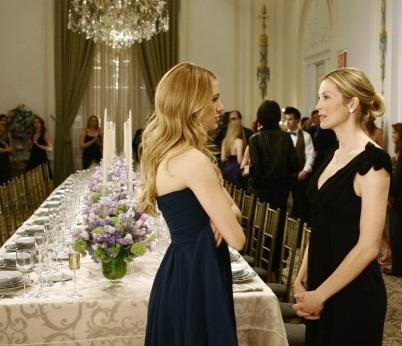
Mom, it really pisses me off that you were never, not once in your life, not even a little bothered by my constant, incessant, excessive day-drinking right in front of you
Gossip Girl plays the same song, too: Blair was raised more by her housekeeper/enabler Dorota (Zuzanna Szadkowski) than her parents. Serena and Eric (Paolo) had to suffer through a number of absentee stepdads and an absent-minded mom. In spite of his son’s efforts to build a better relationship with him, Bart Bass (Robert John Burke) has no regard for him to the point of kicking him out once. Nate’s parents use him as a pawn so that his drug-addicted, embezzling-happy father can save himself from financial failure.

The Adventures of Jackass, Sr and Jackass, Jr
Hidden Palms is full of fancy outdoor parties with open bars, distracted parents, and alcoholic teen girls and boys who just wanna have fun. On 90210, Harry Wilson (Rob Estes) is hardly ever mentioned after he divorces Debbie. Teddy (Donovan) has conservative relatives who shun him after he comes out of the closet. Omar Shirazi (Shaun Duke) abandons his family after it is revealed he deliberately used underage actors in his porn films. Naomi’s parents and older sister Jen (Sara Foster) desert her before she turns eighteen and seem to have no significant role in her life. So does Silver’s older sister Kelly (Jennie Garth), who is supposed to be her anchor (That shady bitch Kelly Taylor…) Really, do y’all really not care at all about these kids?
The teen characters’ mutual lack of strong parental figures is never played as something they could bond over, which could be an interesting part of their story if well-done.
The problem is not that they’re writing bad parents. It’s that all the damned characters lack adequate parental supervision. Most of the time, it is not even explored why “the adults acting like kids” are that way, they are just unfit/AWOL for the sake of being so, or because it facilitates whatever storyline is being cooked up for them kids.
- Storylines
Saving the best for last, the biggest problem on the CW’s teen-oriented series are the storylines.
At the end of the day, the issue isn’t even the lack of kitchen-sink realism. That’s not even an issue at all. That’s not something that is always needed in a story for it to be good. The main issue is that these stories either start out without, or end up losing at some point, any grounding elements that keep them lifelike enough not to spiral into the kind of nonsense that doesn’t make any sense not only by real-world standards, but also by in-universe standards. So, you get content devoid of any sense of the reality of teenagers’ lives and fails to maturely handle the serious issues that are presented.
I’m gonna get real nitpicky here, so forgive me if at time I go too far. Thing is, once your eyeballs see at lot of this stuff, it’s hard not to develop critical opinions as well as a serious case of nitpicky-ness.
What troubled me the most about 90210 in season two and three was how they handled Naomi’s rape at the hands of Mr. Cannon (Hal Ozan). I remain of the opinion that a television series as tongue-in-cheek as 90210 should never ever, ever, ever, ever carry on a rape plot simply by virtue of lacking the nuance in writing and maturity to justify its existence. That’s the number one reason I hated it. There was one thing about it that surprised me, however, at least in the very first episodes of season three. They were presenting this serious plotline with empathy, showing us the way Naomi spent her summer isolated, tried to behave as nothing happened even though it was clear something happened, her fear of telling the truth before she decides to speak out to a cop, and overall avoiding typical ugly soap opera tropes.
It seemed too good to be true that they were being sensitive. It didn’t last long. 90210 being 90210, they had to get their soapdish on and write one of the most mind-numbingly inappropriate subplots ever. In the end, you wonder whether the writers were writing the episodes as if it were the last chance they’ll ever have in their life to write a PG-13 version of a recklessly exploitative, disrespectful rape revenge flick.
It must also be noted the season never truly explores the way Naomi readjusts to intimacy after being raped, when it would’ve been a good storyline and far more interesting than the revenge stuff.
Several series feature characters aged 19 who own lucrative businesses such as hotels and bars, as well as music video production and party planning companies, 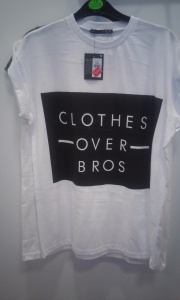 and they’re wildly successful and good at it! I would understand if the characters had spent years observing the business world, thus gaining some sort of advanced skills for business deals. But they didn’t. Well, there’s Chuck, but only Chuck, and he ain’t advising anyone else.
and they’re wildly successful and good at it! I would understand if the characters had spent years observing the business world, thus gaining some sort of advanced skills for business deals. But they didn’t. Well, there’s Chuck, but only Chuck, and he ain’t advising anyone else.
On The Carrie Diaries, a teenage boy got kicked out of school for sleeping with a female teacher. Not the other way round. Absolutely credible. Not traumatising at all! Also, at an art show people start yelling at 16-year-old Carrie (AnnaSophia Robb) to show her vagina… Why are you yelling at Carrie’s babyfaced 16-year-old-self to show her vagina, creep?
The subplot concerning Blair’s bulimia on Gossip Girl was underdeveloped. It was a shout-out to the novel, which also failed that storyline by using the eating disorder merely as another source of gossip rather than to shape Blair’s character. On the TV series, it was not made into gossip material and it’s good that it doesn’t define her, but it wasn’t even really explored how Blair felt about it or how she was able to get over it so quickly after she relapsed in season 1. Since I’m speaking of Carrie and Blair’s bulimia storyline, it must be said there are many storyline-related problems when it comes to adaptations on the CW. Sarah Jessica Parker’s Carrie and Sex and the City are iconic in American television. While Sex & the City didn’t reveal that much about her backstory, the spin-off manages to ignore everything that was said. I mean, I suppose I can cut it some slack because it is actually based on the eponymous novel series that portrays Carrie’s upbringing differently from the way it was described on Sex & the City, but still, they could’ve bothered trying to find a healthy balance between the two…
- A Blast from the Past
Sometimes the changes are for the better, e.g. The Vampire Diaries novels have a very silly mythology. The series makes it better, but the plots and characters bear little resemblance to the novels aside from certain parts. When adapting a novel into a TV series, the writers try to find the balance between remaining faithful to the book and adding things to keep things fresh, but not here.
Same for Gossip Girl, which presents the first novel’s plot in the pilot episode, then heads off to whole different directions for the remaining seasons, except for a few half-hearted shoutouts. The major TV characters have the same names as the novel characters, and most of the time that’s all they share. Even the characterizations are different: Georgina Sparks (Michelle Tratchenberg) and Eric from Gossip Girl and Cassie Blake (Britt Robertson) from The Secret Circle are far and away from their novel counterparts when it comes to their personalities. Don’t even get me started on Gossip Girl‘s straight-washing of Dan and Chuck… And no, Blair saying Chuck kissed guys in the past ain’t enough, y’all. Also, y’all noticed how white New York was from 2007 to 2012 on Gossip Girl? Or how all the people of color were either “servant” types or disappeared after a few episodes? Nah? Okay….
Reign‘s utter lack of historical accuracy – and its plain meh-ness – should be enough to get the series canceled. The ENTIRE SERIES is inaccurate. From the characterizations and events to the clothes and the names, it is so inaccurate it could be set in a fictional land and nobody would ever even guess it has something to do with history. Hell, I even wrote an entire article about how inaccurate it is.
One Tree Hill romanticizes Haley’s pregnancy a bit too much. Hell, she manages Advance Placement classes and cheer practice with morning sickness up until joyously going into labor during her valedictory speech at high school graduation! And it’s unbelievable her oh-so-supportive parents don’t show up to help her after she decides to keep the baby. The tacky way the Clean Teens are initially mocked just feels weird, especially since Haley wasn’t made fun of when she was abstinent herself… So, basically, abstinence is tolerated only when a main character chooses it? That’s not very consistent…
On The Vampire Diaries when obviously older dudes show up to social gatherings as the dates of minors, no one bats an eye. And you always get grown men at school dances. Doesn’t anyone own a CREEP ALERT? At the aforementioned gatherings and at bars, kids may mention that they can’t drink because they are underage… and then they drink and no one says a thing…


This guy (Nostradamus as played by Rossif Sutherland) is 54 but looks like he’s 35! Wanna discover his secret for eternal youth? Ask Reign’s casting director
Gimme a drink! I’m a teenage vampire slayer who lives alone and somehow still manages not to fail the school year!Matt Donovan is shown serving alcohol from time to time when underage waiters cannot actually serve it… I mean, even The O.C. acknowledged it. And of course, another thing that must be noted is that all these series focus on the popular kids. It’s always the 1% of high school population. Gimme them weirdos, please.
Even Hidden Palms‘ main character understands how fucked up the storylines are when he admits: “It’s not horrible, Mom. It’s just unrealistic”.
Still, while the CW’s reality is heightened for the sake of entertainment, do the teen characters really need to be given adult problems and treated like de-facto adults? The answer is no. They can have the kids still being kids who want what kids want, are seen as kids and do what kids do, with the occasional boom-pow flavour that heightened reality allows within the established universe. It’s not like the CW hasn’t done it before, as I write below:
- Verdict:
Sure, not all of the CW is bad. It’s far and away from making classic-level television about teenagers. The ones it is famous for are mostly preposterous and exponentially ridiculous (and unfortunately, the showrunners know it and don’t give a damn). But it is also less dependent on them. As of late 2014, only The Vampire Diaries, The 100 and Reign are still airing, and all three of them are genre series. The first two are actually nice escapist horror and sci-fi in spite of their flaws (the first two seasons of The Vampire Diaries are kinda alright); The 100 especially is a blessing in that it actually focuses on plot and characterization instead of unnecessary melodrama. Hidden Palms did its best with what it had, but lived under the shadow of The O.C. Gossip Girl‘s first thirteen episodes are also pretty sweet and mantain a good balance between the crazy and the more grounded stuff, and The Carrie Diaries is arguably the best of the CW teen dramas.
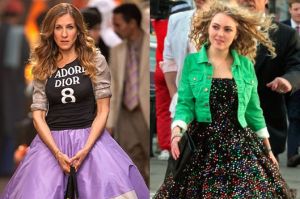
Hi! You made some very good points about the problems with CW shows and basically why no intelligent person ever takes them seriously. I especially like what you said about the way they glorify bullies. Like all the shit Damon did whenever Elena (or Katherine) broke up with him. And we’re supposed to think that’s romantic? Call it the power of true love? I love(d) Damon to death, but that’s just stupid. But in a way, I think dysfunctional relationships and families are what make CW appealing, to tweens anyway. When you’re that young and naive, you don’t really notice plot holes and flawed characterization and bad casting. All that matters is drama: what’s going to happen next? Is he actually her brother? And who cares if those high school boys look 34 if they’re hot as hell? I think what appears ridiculous and stupid to us is what thrills them. So I suppose with regards of pleasing little 13 year old girls, CW’s actually doing a pretty good job. But I agree, if they wanna make shows that rate higher and last longer than 3 seasons, they need to get rid of some pretty serious problems. Good post 🙂
LikeLike
I like how professional and accurate this post is, not just some lame criticism for the sake of it. Although one tree hill is my favourite tv show, I still agree with the flaws you’ve mentioned and I think of some of them while watching too. I start to overcome them when I relate to it, maybe not all of it is real but at least a huge part is. You are a great critic that I believe you could do it for a living, seriously.
LikeLike
Reblogged this on Conversations I Wish I Had.
LikeLike
Pingback: (Looking back at) Fashion/Photography: James King (is a Girl) | The Photography Blog
The age thing is not that big of a deal, mostly because I’ve accepted that it happens everywhere. Russell Crowe once complained about women going for roles of the Ingenue while in their 30s and while artistically he might be right, the problem is that NO ONE is writing roles for women in their 30s as prominent roles. Sex and the City and Golden Girls are exceptions for female characters older than 30 being front and center. So on that front, I get it and so long as we get a good performance, that’s all I care about. I’d rather an older actress play the role of a younger one than a younger one take the role meant for an older actress (the ones playing Susan Storm, anyone?). Imelda Stanton has been campaigning for more good female roles being written in general, but especially roles for older actresses. It’s gotten a bit better, but it’s still scarce.
So, that point is one that is not solely the CW’s fault, it’s a problem regarding the industry in general.
Also, the problem with using teen actors is the money. Not only do you have to pay more to your crew since they can only work certain hours, but you also HAVE to pay the set-teacher that accompanies the teen actor. ALSO, you have to be really careful about stunts since insurance for those kinds of actors is much HIGHER than for adults…. In other words, having the lead actor be an actual teen is very expensive and some producers would have a hard time justifying using a teen actor when an adult has more experience, more discipline, can work longer, and won’t cost the network as much money. So they might use actual teens for one-offs and guest characters, but not for the leads. I get the logic behind it, though 30’s is pushing it a tad.
But aside from that, I do agree with your points. So much
LikeLike
Pingback: On TV: Everything Wrong with NBC’s Heroes, Ten Years After its Series Finale | The Blog
Is anyone here in a position to recommend Berman Centre? Cheers xxx
LikeLike
Does anyone know what happened to Dimepiece LA celebrity streetwear brand? I seem to be unable to proceed to the checkout on Dimepiecela site. I’ve read in Marie Claire that the brand was acquired by a UK hedge fund in excess of $50 million. I’ve just bought the No Hate No Fear Tote from Amazon and totally love it xox
LikeLike
Has anyone ever been to Darth Vapor Lounge Ecig Shop in 6750 Kalamazoo Ave SE?
LikeLike
Hello everyone , can anyone suggest where I can buy Wyld CBD CBD Edible Blackberry Gummies 250mg 500mg?
LikeLike
Pingback: Blast from the Past: James is a Girl by Nan Goldin | The Blog
Is anyone here in a position to recommend Crotchless Knickers and Panties? Cheers xx
LikeLike
Is anyone here in a position to recommend Female? Thanks xxx
LikeLike
Pingback: (Awards season) At the Movies: Revisiting recent Oscar snubs | The Blog